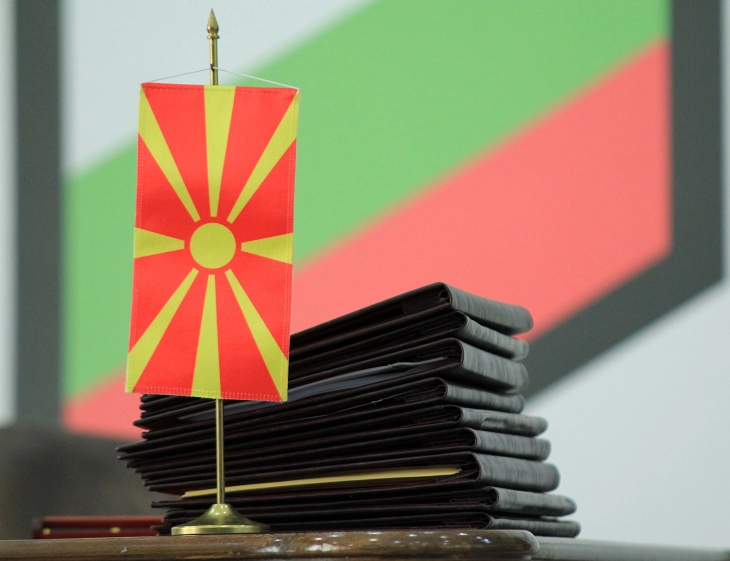N. Macedonia – Bulgaria joint history commission makes decisions by consensus which are then implemented reciprocally, says PM

Skopje, 16 November 2022 (MIA) – The history commission is in charge of the historical issues and this is clearly defined by the negotiating framework, which is a result of the European proposal made during the French Presidency. The decisions of the history commission are made by consensus of 14 historians – seven from each country, then they are delivered to both governments so they can implement them on a reciprocal basis, said Prime Minister Dimitar Kovachevski on Wednesday, in answer to a journalist’s question on the relations with Bulgaria.
Regarding the cultural clubs, Kovachevski said that he has always condemned the opening of clubs named after figures who had ties to the Third Reich.
“I believe that opening clubs with such names does not contribute to the good neighborly relations between the two countries at all, and it is always better to use names which connect the two peoples. For cultural centers it would be more appropriate if they were named after artists, writers etc.,” said Kovachevski.
According to Kovachevski, what is worse is that the clubs are not only supported by some of the Bulgarian politicians but also by the Macedonian opposition as well.
“The leader of the Macedonian opposition clearly said that he is part of the continuity of Vancho Mihajlov, and Vancho Mihajlov was a proven collaborator of the Third Reich. And I believe that even the opening of the clubs was surely somehow supported by parts of the Macedonian opposition and even the events that occurred after that,” said Kovachevski.
The PM said that North Macedonia will send a request to the Bulgarian government for the opening of a Macedonian cultural center in Blagoevgrad, just like the ones opened in Sofia, Tirana and other cities.
“This will make it possible for the Macedonian culture to be nurtured by the citizens who consider themselves Macedonians, and in every country, there are citizens whose self-determination differs from that of the majority of the population. However, these centers will make it possible for citizens from other nationalities to get acquainted with our culture as well,” said Kovachevski. ad/ba/







